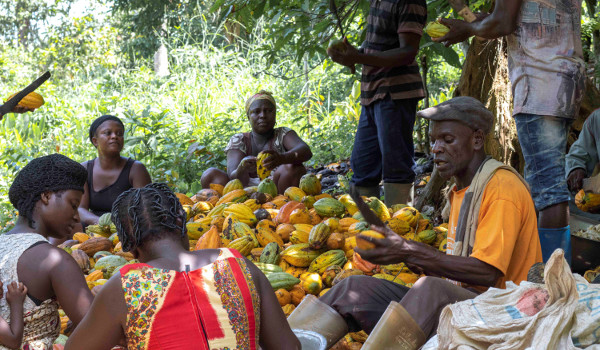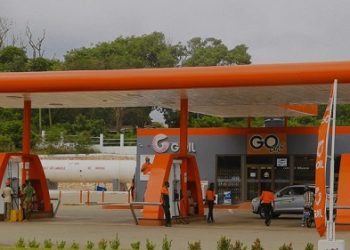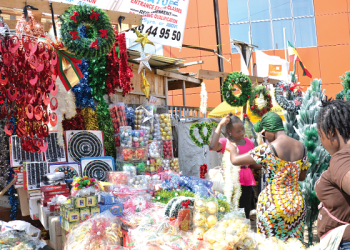Ghana is seeking to borrow $400 million from cocoa traders to finance industry operations as it struggles to secure an annual loan from international banks amid a government debt restructuring.
The Ghana Cocoa Board, the industry regulator known as Cocobod, is tapping traders including Olam Group Ltd. and Barrry Callebaut AG to pre-finance seedlings, chemicals, fertilisers and purchases of beans from farmers in the 2023-24 season, according to people familiar with the talks.
The Cocobod has already raised about half of the target from the companies, said the people who asked not to be identified because they’re not authorised to speak publicly about the deals. The financing cost about 5%, while the remainder of the funds may be raised from the same firms or the parents of other foreign-licensed buying companies, the people said.
Ghana is the world’s second-biggest cocoa grower and relies on funding from abroad to pay farmers for beans that are then exported. The central bank also relies on the foreign exchange as an important source of hard currency that is used to help stabilize the nation’s currency.
Cocobod spokesman Fiifi Boafo didn’t answer calls or text messages seeking comment. Tanko Bagbara, a spokesman for Ghana’s Agriculture Ministry, which has oversight responsibility for the board, declined to comment when contacted by Bloomberg. Olam and Barry Callebaut also declined to comment.
The Cocobod, which has previously obtained loans from investors at better rates than the government, would normally conduct an investor roadshow between June and July each year and sign the syndicated facility in September before the new harvest begins in October. This year, the talks have been complicated by the West African nation’s debt restructuring that was needed to unlock a $3 billion government bailout from the International Monetary Fund.
The Cocobod itself had to revamp 7.7 billion cedis ($646 million) of its cocoa bills as part of the debt overhaul, sullying its investor appeal. The regulator typically lends the money it raises to local licensed buying companies, or LBCs, to buy the beans from farmers on its behalf.
Cocoa Production
The board had planned to raise $1.2 billion of syndicated loans in the season that began last month, compared with $1.1 billion last year. It’s still in talks with lenders about the $800 million it’ll need once the funding has been secured from the companies.
Ghana is forecast to produce 850,000 tons of cocoa this season, up from a 13-year low of 683,000 tons in the period that ended in September, the people said. Still, worries about tight global supply have boosted futures, with the most-active New York cocoa contract nearing a 45-year high on Monday.
Because of the lack of funding, no local LBC is able to buy the chocolate ingredient from farmers and the Cocobod has agreed with the foreign buyers to use their own money to purchase the beans from the growers for repayment later, the people said.
Most of the domestic LBCs have closed shop because they depend on funding from the regulator to operate, they said. Growers have to bear the extra cost of transporting their beans over long distances to find the centers of the few foreign buyers.










Discussion about this post